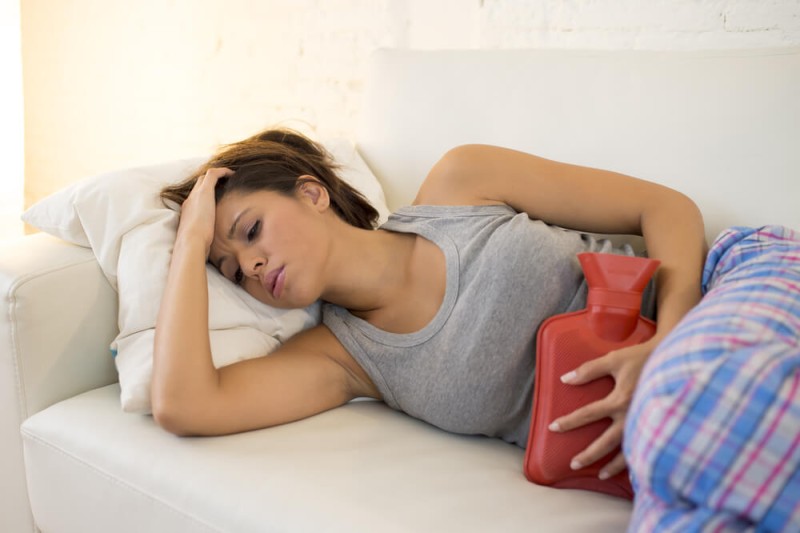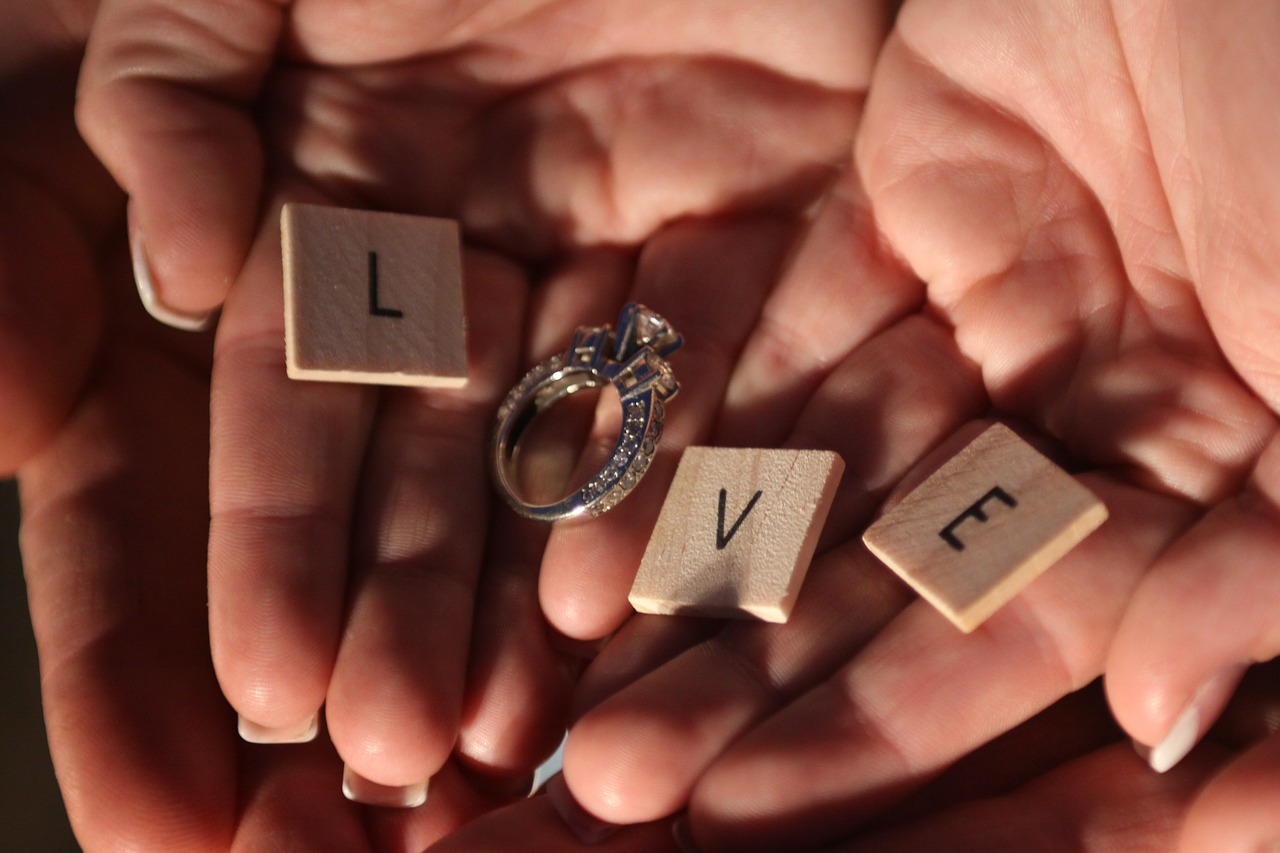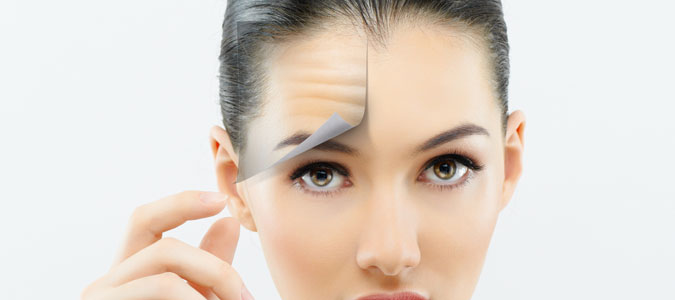- The female body goes through a series of changes during menstruation. Apart from menstrual bleeding, changes in the hormonal balance can cause various symptoms.
- These are part of the so-called premenstrual syndrome (PMS) that’s characterized by several physical, emotional, and behavioral changes occurring before and during menstruation.
- The most common symptoms include headaches, fatigue, breast tenderness, and food cravings.
- However, in some cases, females can also experience mental health issues, such as anxiety and depression. On the other hand, if you’re already suffering from depression, it may tend to get worse before and during your periods.
- There are a few tips and tricks that will help you get through the symptoms more easily. Keep reading!
Why Do You Get Anxiety Spikes During Your Period
The menstrual cycle[1] has a complex mechanism of regulation involving various hormones. There are four levels of control - the brain cortex to the hypothalamus, pituitary gland, and ovaries.
Hormones, such as estrogens, progesterone, follicle-stimulating hormone, and luteinizing hormones, are intertwined in an intricate relationship of mutual up and down-regulation. The levels of all of these hormones change during our period to discard the thickened lining of the uterus.
However, these hormonal changes also affect our brain, leading to mood swings, anxiety, depression, and other symptoms.
Additionally, up to 5% of people who menstruate can experience a more severe form of premenstrual syndrome called a premenstrual dysphoric disorder. Generally, this makes all of the above symptoms more severe far less tolerable.
Coping with anxiety can be especially challenging during our periods. Stay tuned for a few tips that might make things a lot easier for you.
Top 9 Tips To Deal With Anxiety During Your Periods
1. Track Your Symptoms - When experiencing anxiety, depression, and other symptoms during your periods, it can be worthwhile to note them down. Document anything that you feel is out of the ordinary, such as unexpected impulses of sadness or crying, irritability, food cravings, sleeplessness, and fatigue. Some of these symptoms can come and go during each period, but documenting them can make it much easier for your doctor to come up with an accurate diagnosis and treatment.
On a side note, if you’re looking for a dietary supplement that can help you deal with anxiety, check out a few Brillia reviews.
2. Hormonal Birth Control Methods - It makes sense that if it’s hormones that cause your symptoms of anxiety and depression, then hormonal contraceptives can help ease them out. Hormonal birth control methods in the form of a pill or a patch can balance out your hormonal levels and reduce physical and psychological symptoms of premenstrual syndrome. Nonetheless, make sure you always consult with a doctor before you start taking them because hormonal contraceptives have a few contraindications[2].
3. Exercise Regularly - Staying physically active can help you keep your hormones in check and make your periods more tolerable. It’s also a brilliant way to reduce stress and its adverse effects on our bodies.
Furthermore, sports will help you stay in shape and keep you generally healthier. Studies[3] also show that people who exercise have a significantly lower risk to develop symptoms of anxiety and depression. Moreover, exercising can also help you fight existing depressive disorders.
1. Have a Balanced and Nutritious Diet - What you eat is also crucial, especially since food cravings are very common during periods. Usually, these involve foods with excess amounts of sugar, salt, and fats that can be very unhealthy. Having a balanced and nutritious diet can help you cope better with anxiety and depression during your periods.
The best-period foods include fruits, vegetables, and whole grains. These will provide you with vitamins and minerals that can balance out your hormones. On the other hand, alcohol, smoking, and caffeine may worsen your PMS symptoms.
2. Vitamins and Minerals Supplements - Speaking of vitamins and minerals, you can also pick an option from the best anxiety supplements. There are dietary supplements that are specifically designed to help you combat symptoms of anxiety and depression.
Some of the best vitamins and minerals and other nutrients for depression include magnesium, melatonin, vitamin B, ashwagandha extract, and more. However, when choosing a supplement, only go for natural and research-backed formulas that won’t cause you any side effects.
3. Get Plenty of Sleep Every Night - Not getting enough sleep tends to worsen the symptoms of anxiety and depression. On top of that, it can make you more irritable, fatigued, moody, less concentrated, and more prone to stress.
To avoid these complications altogether and cope with anxiety better, make sure you opt for at least 7-8 hours of sleep every night.
1. Reduce Your Stress Levels - Chronic stress is another factor that can contribute to anxiety and depression. On top of that, it’s also a risk factor for numerous other health conditions, including diabetes, obesity, high blood pressure, and autoimmune disorders.
Opt for relaxation and mindfulness techniques, such as massages, tai-chi, and breathing exercises. Massage therapy also tends to work for many people.
2. Consider Looking for Professional Support - If you feel like your anxiety or depression symptoms during your periods are becoming overwhelming, it’s always a good idea to visit a gynecologist. They could prescribe hormonal contraceptives and suggest lifestyle tips and period foods to help you get through your PMS. You can also consult with a psychiatrist who can give you expert advice on dealing with anxiety and depression.
3. Consider Taking Medications - In some cases, if things are not getting better by making lifestyle changes, your doctor might suggest taking antidepressant drugs, such as SSRIs.
However, these might have some side effects so they should only be used when it’s absolutely necessary. Instead, consider picking an option from the best anxiety supplements currently available.
The Bottom Line
Overall, there are many things you can do to combat symptoms of anxiety and depression during your periods. Lifestyle changes, such as starting sports, having a balanced diet, and sleeping more will help promote your overall health.
If things don’t seem to get better, make sure you reach out to a medical professional. Also, don’t forget to check out a few Brillia reviews. It’s a reputable supplement that may provide you with extra nutrients.
References:
1] https://pubmed.ncbi.nlm.nih.gov/1091131/









